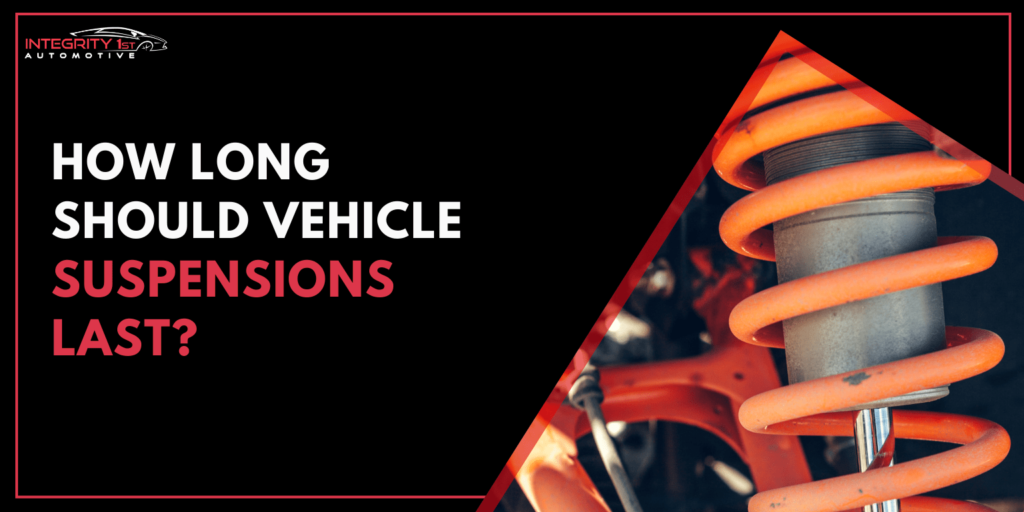Ever wondered why do cars need oil changes across the globe? In many regions, cars might rumble along for 12,000 miles before needing fresh oil, while American drivers swear by the sacred 3,000-mile mark. So, what’s the truth behind these seemingly contradictory recommendations?
This article explores the world of motor oil, discussing the factors that influence how often you should change your oil.
We’ll explore the manufacturer recommendations, and address the age-old question: How to choose the right engine oil for your vehicle?
Get ready to understand the purpose of oil change and determine the optimal oil change schedule for your car.
Let’s go!
The Importance of Oil Change Service
So, is an oil change necessary? Absolutely, yes!
Regular oil changes play a crucial role in maintaining the overall engine health and longevity. Your engine oil lubricates the moving parts and prevents excessive wear and tear to ensure optimal performance.
Here is why your cars need regular oil changes.
- Oil prevents friction between the moving parts of your vehicle and protects your engine from potential wear and tear, increasing the lifespan of your vehicle.
- It maintains the optimal performance of your engine for better fuel economy and power output.
- It keeps your engine in good condition by preventing sludge buildup and overheating.
- Additionally, it improves the resale value of your vehicle.
- Therefore, it is important to perform oil change regularly for your engine’s optimal health and performance.
Why Do Cars Need Oil? 4 Reasons to Get an Oil Change
Engine oil is the most underrated thing that performs several critical functions to ensure optimal performance and longevity.
Here are some reasons why you should change oil regularly.

Better Gas Mileage
Clean oil allows your car to operate better with improved fuel economy which saves you a lot of money and time.
Reduces Engine Wear and Build-up
Oil is an outstanding lubricant for your engine’s components. It also prevents metal-to-metal contact that may wear over time and removes harmful contaminants, preventing engine damage.
Longer Engine Life
As mentioned earlier, regular oil changes prevent engine wear and tear, ultimately leading to a longer lifespan and avoiding costly repairs and replacements.
Provides Engine Lubrication
The oil keeps your moving parts lubricated. It also prevents overheating and reduces friction. As a result, it enhances your engine performance and also prevents damage to the critical components of your vehicle.
When to Change the Motor Oil

Generally, car manufacturers provide guidelines for oil change intervals. However, you can also determine when to change the engine oil through a sensory approach.
Pay close attention to the oil’s appearance, smell, and texture to gain valuable insights into its condition and age.
Appearance
Wondering what color should car oil be? Fresh engine oil is typically golden or amber in appearance. If you notice that the oil has turned dark brown or black, it’s a sign that it needs to be changed.
Odor
Fresh engine oil smells mildly sweet. If you notice a strong, pungent smell coming from your oil, it could be a sign of burning or degradation.
Texture
To check the texture, rub a small amount of oil between your fingers, if it’s gritty or rough, it has contaminants that can harm your engine.
Sound
If any unusual noises are coming from your engine, such as rattling, knocking, and ticking sounds, it’s a sign of insufficient lubrication and an indicator that you need an oil change.
How Often to Check the Oil Level?
Checking the oil levels regularly is essential to maintain optimal vehicle performance and prevent engine damage.
For new vehicles, always consult your owner’s manual for general recommendations. Many modern cars come with oil-level sensors that display the current level on the dashboard.
For older vehicles, it’s recommended to check your oil level at least once a month or before a long, exhausting trip.
Regularly checking your vehicle’s oil level helps to:
- Prevent engine damage.
- Maintain performance with efficiency.
- Identify potential leaks, preventing more serious engine problems.
How Often to Change Oil?
The answer to “How often to change engine oil” depends on many factors, including:
Driving Habits
If you usually take long trips and tow heavy loads, it may put a lot of stress on your engine, consuming more oil. Therefore, you should change the oil more often.
Additionally, if you’re an aggressive driver, it may increase the chances of engine wear and tear and shorten the lifespan of your engine. As a result, you may need to change motor oil more frequently.
Manufacturer Recommendations
Usually, manufacturers provide specific mileage recommendations for oil changes. We highly recommend adhering to these guidelines to maintain the overall performance of your vehicle.
Driving Conditions
Considering the road conditions and climate in your area determines how often you should get an oil change. If you live in areas with extreme temperatures and dusty roads, it can accelerate oil degradation.
Type of Engine Oil
As compared to synthetic engine oil, conventional oils have shorter change intervals. Therefore, they need more frequent oil changes than synthetic motor oil.
Age of your Vehicle
Old vehicles tend to consume more oil and may wear out, increasing the risk of oil contamination. Therefore, in older vehicles, you may need more frequent oil changes.
Choosing the Right Oil for Your Car
The right oil for your vehicle will maintain its optimal performance and longevity. Also, it protects your engine, improves fuel efficiency, and enhances performance.
Therefore, using the right type of engine is imperative to your engine’s health.
There are three types of engine oil.
- Conventional oil is the most common and affordable option suitable for most vehicles. However, it may require more frequent oil changes.
- Synthetic oil offers superior performance, extended life, and improved protection against extreme conditions. It’s an excellent chase for high-performing vehicles.
- High mileage oil is specially designed for older vehicles with high mileage to help address common wear and tear issues.
How to Choose The Best Type of Engine Oil for Your Vehicle?
Now that you know what type of oil is suitable for your vehicle, it’s time to understand how to choose the best engine oil for your vehicle.
First of all, consult your owner’s manual for specific oil recommendations to know the correct type, viscosity, and change intervals. Secondly, determine your driving conditions; if you live in extreme temperatures or harsh climates, synthetic oil might be a great choice for you.
Last but not least, consider your vehicle’s age and engine performance to choose the best oil type for your vehicle.
Does Your Car Need Synthetic Oil?
Whether your car needs synthetic oil depends on many reasons, the demands of your vehicle and habits, the age of your vehicle, and manufacturer recommendations.
For best advice, it’s recommended to consult a mechanic who provides personalized advice based on your car’s condition and your driving style.
The benefits of using synthetic engine oil for your vehicle are:
- Superior performance while reducing friction and improving fuel efficiency
- Extended engine life with better protection against wear and tear and improved lifespan
- Better cold-weather performance ensuring proper lubrication in extreme conditions
- Reduced sludge buildup to keep your engine clean and operating smoothly
However, like any other product, synthetic engine oil has its own set of disadvantages, including higher costs and limited warranty coverage.
How Much Is An Oil Change
The average cost of an oil change depends on many factors, including vehicle type, oil type, labor costs, and additional services such as tire rotations, air filter replacements, etc.
However, generally, the conventional oil ranges from $20 to $50. Comparatively, synthetic oil costs more ranging from $50 to $100+.
Benefits of Professional Oil Change Services vs. DIY
All the DIY enthusiasts would agree, “Changing the oil yourself at home can be a rewarding experience.”
However, it can get equally challenging for those with little to no automotive experience.
Therefore, if you have limited tools and supplies, it’s recommended to leave these matters in the hands of a professional mechanic.
A professional technician or mechanic will help you do the job efficiently with expertise and precision, using the correct torque settings. Additionally, they have the right tools and equipment to save you lots of time and effort.
Most importantly, mechanics know how to properly dispose of the used oils and filters to save the environment responsibly.
Get A Quality Oil Change At Integrity 1st Automotive.
If you’re considering an oil change from a professional service provider, keep these important pointers in mind.
Before making a final decision, always research the service provider’s reputation online. You can check Google reviews, Facebook testimonials, or website reviews to assess the quality of services. Also, don’t forget to check if a reputable organization certifies the provider and inquire about any warranties offered on their website for your ease and accessibility.
If you’re looking to change your engine oil near Texas and surrounding areas, try Integrity 1st Automotive. We have a team of skilled mechanics and technicians who provide a wide range of other automotive services, such as tire services, brake services, engine repair, transmission services, etc.
Schedule a call with us today and get your car fixed!
Conclusion
Wondering why cars need oil changes to keep running smoothly and efficiently? It’s the regular maintenance and oil changes that maintain the health and performance of your vehicle in the long run.
The recommended oil change interval is different based on various factors, including your driving habits, climatic conditions, type of engine oil, and the age of your vehicle. Therefore, consult your owner’s user manual to understand the recommended oil change interval for your car.
In the end, no matter if you choose to perform changes yourself at home or contact a professional service provider, make sure to choose the right oil type with the correct viscosity to protect your investment and ensure your vehicle’s longevity.
Frequently Asked Questions
Why Would My Car Need An Oil Change?
Your car needs an oil change for proper lubrication, cooling of the engine, removing the contaminants, and protecting the engine.
What Happens If You Don’t Change Oil In The Car?
If you don’t change the oil in your car, it would lead to increased wear and tear of the engine and the contaminants would build up in the oil, clogging the passages and reducing engine efficiency.
Are Oil Changes Necessary?
Yes, oil changes are necessary to increase the lifespan of your vehicle and improve its overall performance.
Do Oil Changes Make Your Car Run Better?
Yes, oil changes improve your car’s performance and fuel efficiency and make your car run better.
How Does A Car Act When It Needs An Oil Change?
Here are a few signs your car needs an oil change.
1- It leads to reduced performance with decreased power and acceleration.
2- Some unusual noises, such as knocking, rattling, or ticking sounds might arise from the engine.
3- The check engine light might illuminate



